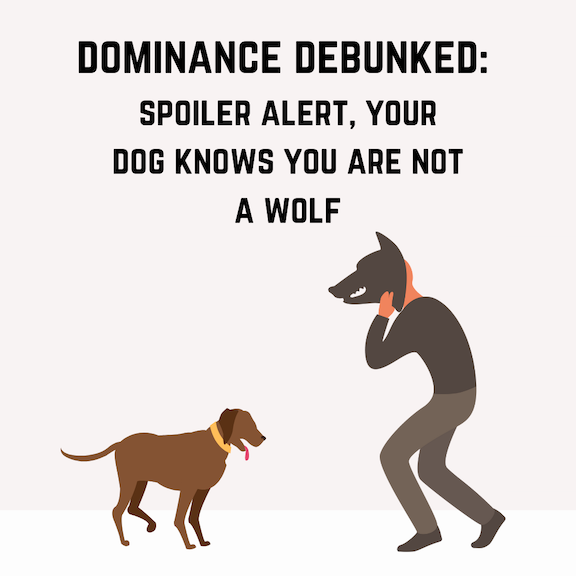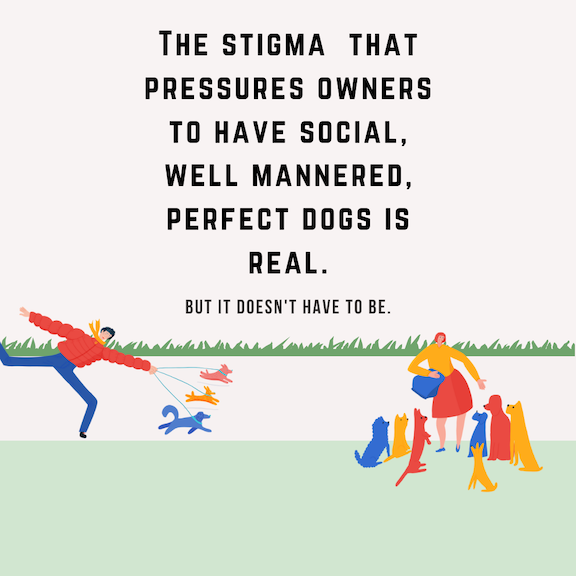From Control Freak, To Science Geek
“You have brains in your head,
You have feet in your shoes,
You can steer yourself in any direction you choose.”
-Dr Seuss
There is something to be said about the powerful feeling you get when you are in complete control. It feels good when you’re able to manipulate all aspects of your life to create outcomes that are in your favor. Confidence, autonomy, empowerment oh my!
But this natural desire to control and have perfection has carried over into every aspect of our lives, including our relationships with our dogs. We control access to our dogs’ basic needs, and we also think that we must maintain and control our dog’s behaviors.
“Be the pack leader, or your dog might take over the world”
Okay, I know that sounds a bit dramatic, but the mentality is there.
“When out for a leashed walk, Don’t let your dog walk in front of you.”
“Your dog needs to wait at the door and let you walk through the doorway first.”
“You should not allow your dog to sleep on the bed with you.”
“Don’t spoil your dog.”
“If your dog growls at you, you should make them submit to you by rolling them over on their backs.”
“Your dog should ‘ask permission to gain access to day-to-day activities.”
“You should never let your dog ‘win’ at a game of tug.”
A lot of these ideals stem from what is known as the “dominance” or “pack theory”. This theory is the idea that we must assert our dominance to be viewed by our dogs as the leader of the pack, and in doing so that we will maintain every bit of respect and harmony deserved within the household.
This very theory was developed based on a study of unrelated wolf packs that lived in captivity during the 1940s by animal behaviorist Rudolf Schenkel. There was evidence of what seemed to be hierarchy set amongst the wolves in relation to accessibility of resources as well as a clear ‘alpha’ maintaining the balance and structure in the pack through aggressive displays. Because dogs descended from wolves, it was popular opinion that dogs then had a similar social structure amongst themselves and this soon after developed into a way to train our dogs by maintaining the top ranking pack status and teaching our dogs to follow our lead. I can’t speak for everyone and every hypothesis, but sometimes change is inevitable as we are always learning and growing.
So let's just say dominance debunked.
The dominance theory has since been disproven by MANY experts with-in the field. One complication with the study is that wolf packs typically consist of a mated pair and their offspring of the past 2-3 years. This makes up the Wolfy home. The wolves in the Schenkel scientific study were all unrelated wolves forced to live amongst one another for many years, creating tension between mature adults that would never happen in a natural, wild pack. Hierarchies do exist amongst the family wolf pack, but Dr. Sophia Yin states in her book, Animal Handling and Behavior, “Wolves in the wild generally do not gain their high rank by fighting their way to the top. Instead a male and female breed and the pack is a family unit composed of the parents and the offspring. The parents naturally become the leaders. The offspring naturally follow their lead. As a result of this discovery regarding pack structure, wolf biologists no longer even use the term alpha with wild wolf packs”.
**There’s also the thousands of years of evolution separating dogs and wolves that led to a multitude of behavior changes and differentiation between the two, but who's counting.**
Here is a Spoiler alert for you though: Your dog knows you aren’t a dog or a wolf.
While we may call ourselves dog-moms & dog-dads, humans are of an entirely different species.. Even if Schenkel’s initial theory was accurate, as humans we simply don’t have the capacity to communicate with our dogs the same way our dogs communicate with each other, nor do we have the same reaction times as our dogs. We can study body language extensively, walk on all fours, go live with a pack of wolves….but it would be obvious to our dogs that we are frauds.
All of this to say: It may feel good to be in control of every aspect of your life and your dog’s, but it won’t gain you the respect you think it does and it doesn’t fix or prevent problematic behaviors.
The Social Stigma is real:
Our dogs are expected to behave, react, and just be a particular way to fit society’s mold, and we are socially expected to have control over these actions. The pressure to meet these impossible expectations and have a perfectly behaved dog, not to mention the judgment when your dog is the least bit “disobedient”, is embarrassing and alienating. Therein lies the stigma. Those comments of:
“I saw Susie at the park earlier, and it looked like her dog was walking her! That woman can’t seem to get a handle on her dog!”
-Judgemental Judy
“Ah Get your dog off of me! Your dog has no manners!”
-Insightful Isaac
**That ever so scrutinizing stare given when your dog does anything ‘wrong’ (barking, pulling, jumping, digging)**
-Superior Sally
We apologize profusely when our dog behaves in such a way (How dare we allow our dogs to step out of line, right?). We feel totally inadequate compared to those we see around us frolicking about with their easily managed off-leash angels. Been there, felt that. If you read my last blog post you have a little insight into my Naughty Nadia. She is a chocolate pittie, who is really part warm-hearted teddy and part licking symbiote, but the stigma attached to her breed mix on top of her piercing bark and powerful lunge when seeing other dogs outside of the home created an immediate reaction of judgment. I tried my best to ignore the looks I got and the comments people made as I struggled to hold back my lunging dog. The overwhelming embarrassment was exhausting, and I was totally out of my element. I was told that Nadia was a “difficult dog”, and she just needed structure and a firmer hand of discipline This ultimately led to the use of a shock collar. A “communication tool” is what the trainer told me. I have to admit, there was a powerful confident feeling I got when Nadia would follow my every command so swiftly- she had become by societal standards a socially acceptable dog.
What I didn’t realize then was this emotionally driven sentient being was struggling under the surface. How desperately she needed my compassion and guidance, rather than my need for social acceptance. I didn’t take the time to understand that maybe the reason my crazy fur child is losing it when she sees other dogs was due to discomfort, insecurity, and fear...and that perhaps the reason she is abiding my every request is that she is afraid of the startling shock that would occur if she didn’t respond accordingly. The guilt I began to feel weighed heavily as I came to this realization that I had selfishly factored in my needs and wants over hers...and because of my choices, she was left feeling helpless, frustrated, and powerless. Oh.
So we need to Let go and Let Dog.
Now I’m not saying that our dogs don’t need leadership. Our dogs are living in a human household in a human world, one in which they are not born knowing how to navigate on their own. Guidance will always be needed no matter the animal or species, but we need to loosen that grip on the steering wheel and teach our dogs how to drive. We have to understand that our dogs behave in specific ways that function for them. It’s our job as dog parents and companions to learn the best ways to communicate so that our dogs comprehend, without the use of intimidation and force, but rather with compassion, understanding, and respect. Instead of correcting our dogs for getting it wrong, we can support them in getting it right. It’s the best feeling in the world to watch your fur kids make the best choices and still have the freedom to just be dogs. This has been a game-changer in my relationship with not only Nadia, but my entire zoo. Once you begin to understand the function, the emotions, and the natural drive of your dog’s behaviors, you can really begin to develop a deeper relationship that is rooted in a partnership of mutual trust and respect rather than domination. We can plant the seeds and watch our little ones flourish to be their best doggy selves, the way dogs are meant to be.


